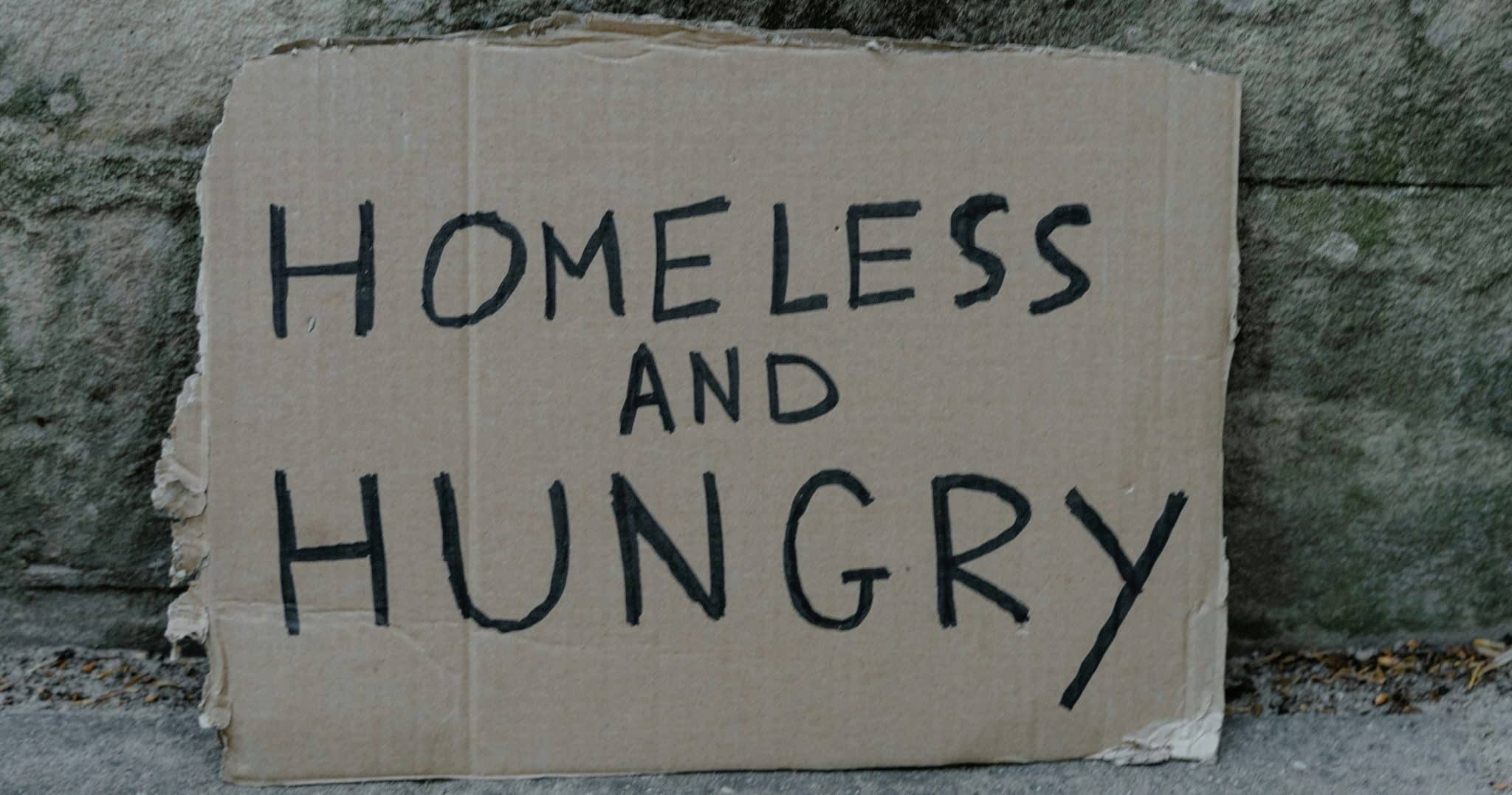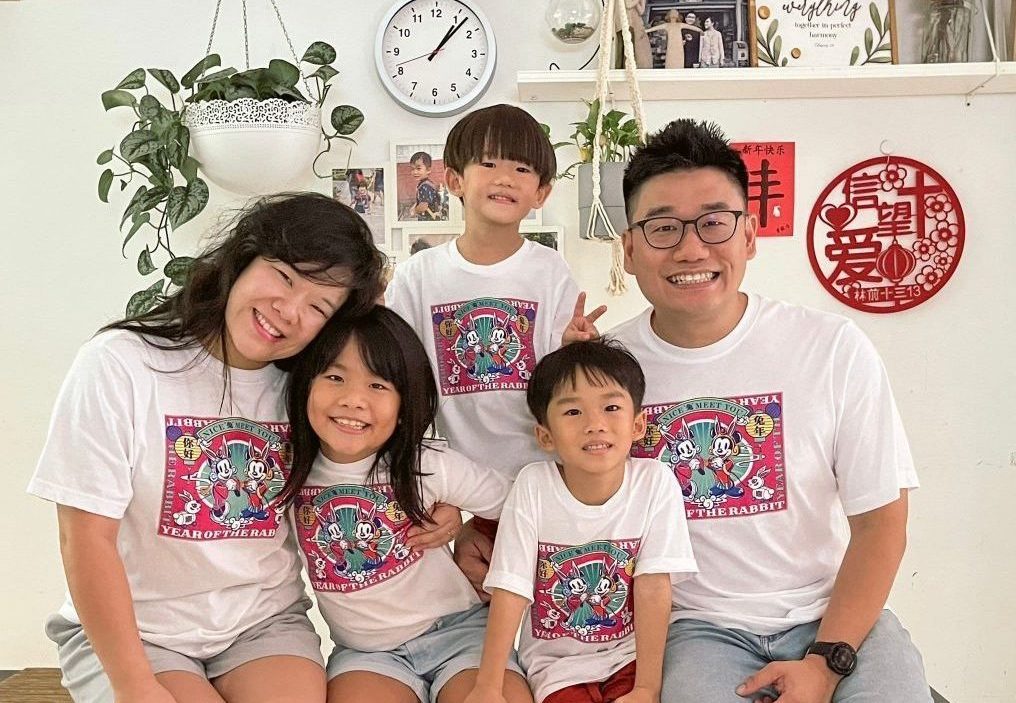“She’s my hero”: Eugene Wee, whose wife was determined that their baby would not die in vain
Salt&Light wishes all readers a Happy Valentine's Day!
by Juleen Shaw // February 14, 2020, 10:00 pm
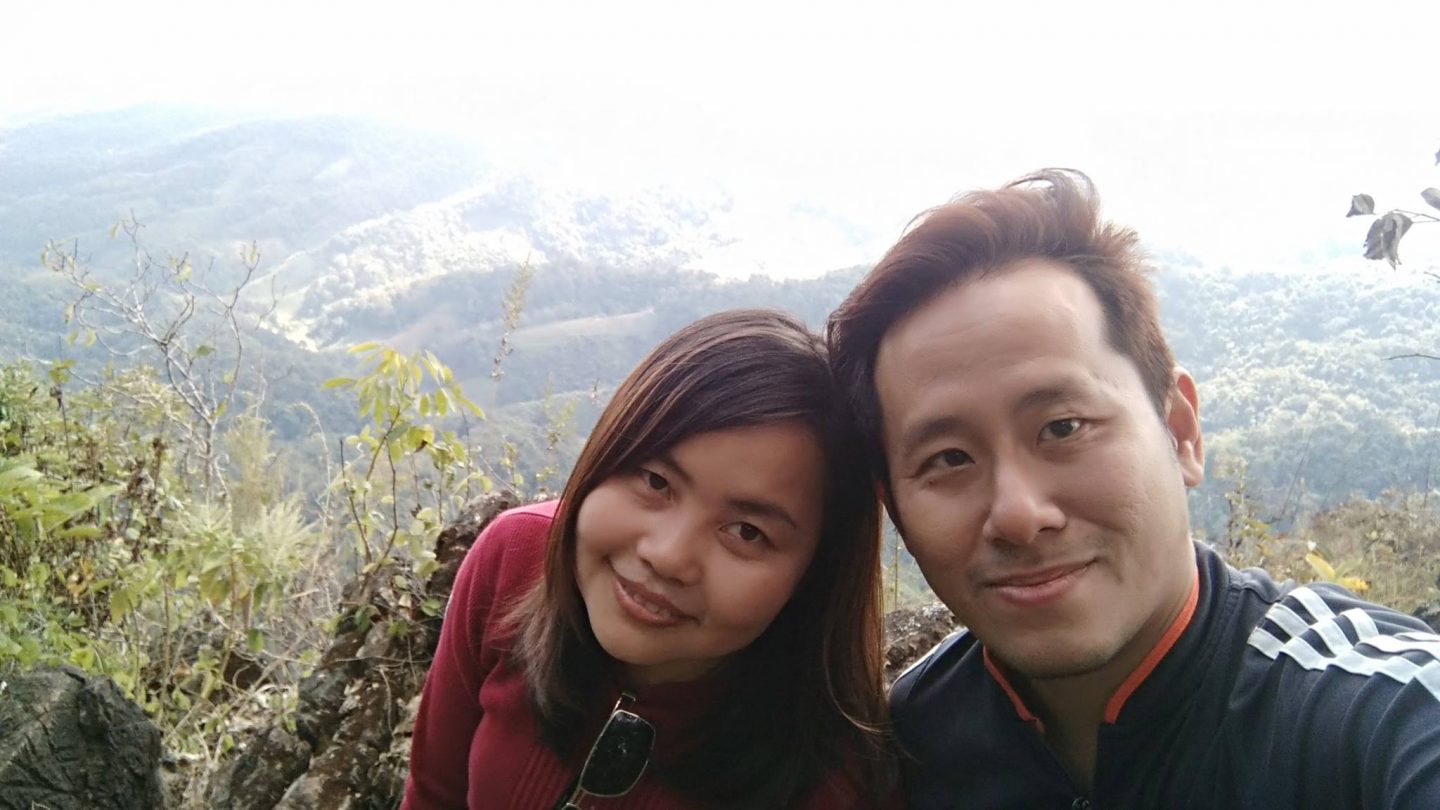
Eugene Wee sat with his wife, Puu Kanokrat, as she endured 33 hours of labour to give birth to their stillborn baby for research. All photos courtesy of Eugene Wee.
“During the Singapore summit, a young delegate asked me, ‘Eugene, do you think your wife is pretty?’ My answer was no.”
This may not sound like the start of a love letter.
But it is one of the most moving you will read anywhere.
It was September 16, 2018.
In a Facebook post that would later be picked up by multiple news wires and shared by thousands, Eugene Wee had written that the young delegate at the summit had been taken aback by his answer.
But he continued: “Well, if you asked my wife if she thought Eugene was handsome? Her answer will also be no.
“You see, we didn’t fall in love because of each other’s looks. At our age, we know that physical looks, like all material things, will fade. And what remains is our faith, our conviction and our love for lives.”
My hero
At the time of writing the post, Eugene and his Thai wife, Puu Kanokrat, had just lost their baby three weeks ago.
In the fifth month of Kanokrat’s pregnancy, the couple had been told that their baby suffered from Trisomy 18, a chromosome condition that could be accompanied by severe mental disabilities, multiple physical deformities and, in most cases, “was incompatible with life”.
“Our child was all three,” wrote Wee.
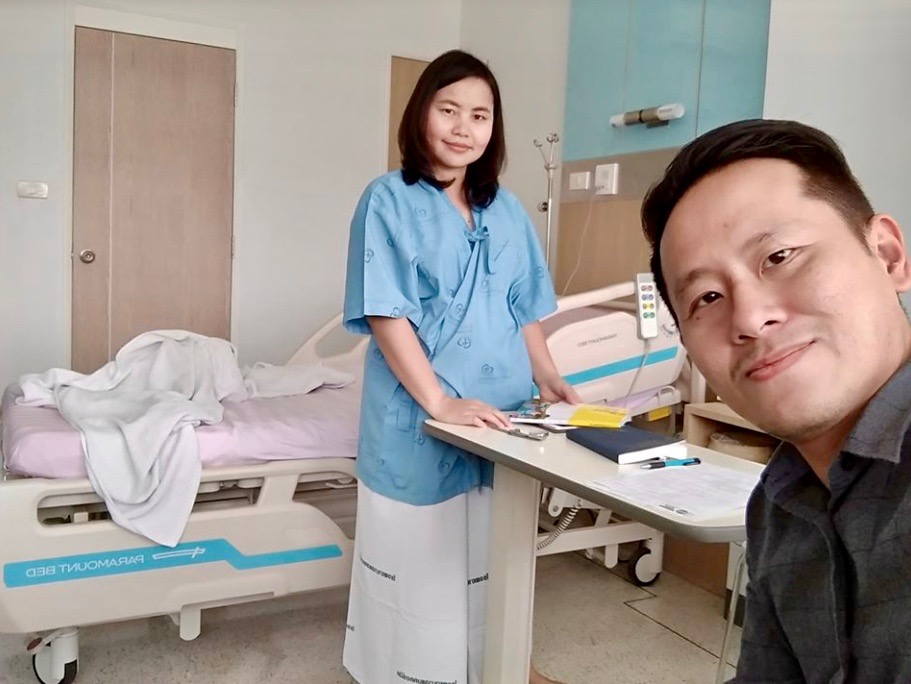
“Dear medical students of Chiangmai University, this is the story behind the foetus with trisomy 18 … a story of faith, love and sacrifice, to journey with you, in hopes that you will better mankind,” wrote Eugene in a Facebook post that went viral.
Upon the news of the rare disorder, professors at Chiangmai University had requested for Kanokrat to allow medical students to study a detailed scan of the foetus.
“For four hours, my wife chose to stay on the ultrasound so every medical student could glean as much knowledge as they could from the foetus.
“It was painful for her. Hearing them discuss her own child’s brain, the enlarged heart, the missing arms, the face, the lack of organs.”
“For four hours, my wife chose to stay on the ultrasound so every medical student could glean as much knowledge as they could.”
Then came an even more painful request: Could Kanokrat deliver the foetus which “could be retained for future research and studies”?
“We knew what it meant,” Wee wrote.
“It was a request for her to suffer and go through hours of painful labour – just as any mother would go through in delivery but for her only to deliver a stillborn child.
“She had endured through the emotional pain, but yet this meant that she will have to go through even more – a whole lot more of immense physical pain – just so the child’s body will be intact for medical research.
“We spoke through it and she calmly replied ‘if my child needs to die, then it should not have to be in vain.’”
Wee had sat with his wife as she’d endured 33 hours of labour, some of them “in extreme pain”. Yet she had refused again and again Wee’s suggestion that they opt for medical intervention as it would mean losing the foetus.
“Dear medical students of Chiangmai University, if you are reading this, this will be the story behind the foetus with trisomy 18,” wrote Wee in the Facebook post.
“A story of faith, love and sacrifice, to journey with you, in hopes that you will better mankind.”
His birthday tribute to his wife ended by calling her a hero of faith, conviction and values.
The post that the world saw ended there.
But there is more to the story.
Moved by nothing
Wee and Kanokrat, now 38, both work at Radion International, an aid agency serving the Hmong people in Thailand, which Wee had founded in 2007 after he was so moved by the plight of the villagers that he turned his back on the corporate world in Singapore and moved to Petchabun to serve among drug addicts, street children and abandoned aged.
When Wee hired Kanokrat as an accountant in the ministry’s early years, “we were in very bad shape”.
“We were severely understaffed – there were only three or four of us, out of whom one wanted to resign and the other was making other plans,” he recalled wryly.
“We needed an accountant to manage our books and I met up with Puu,” he said, adding that it was not love at first sight for either of them.
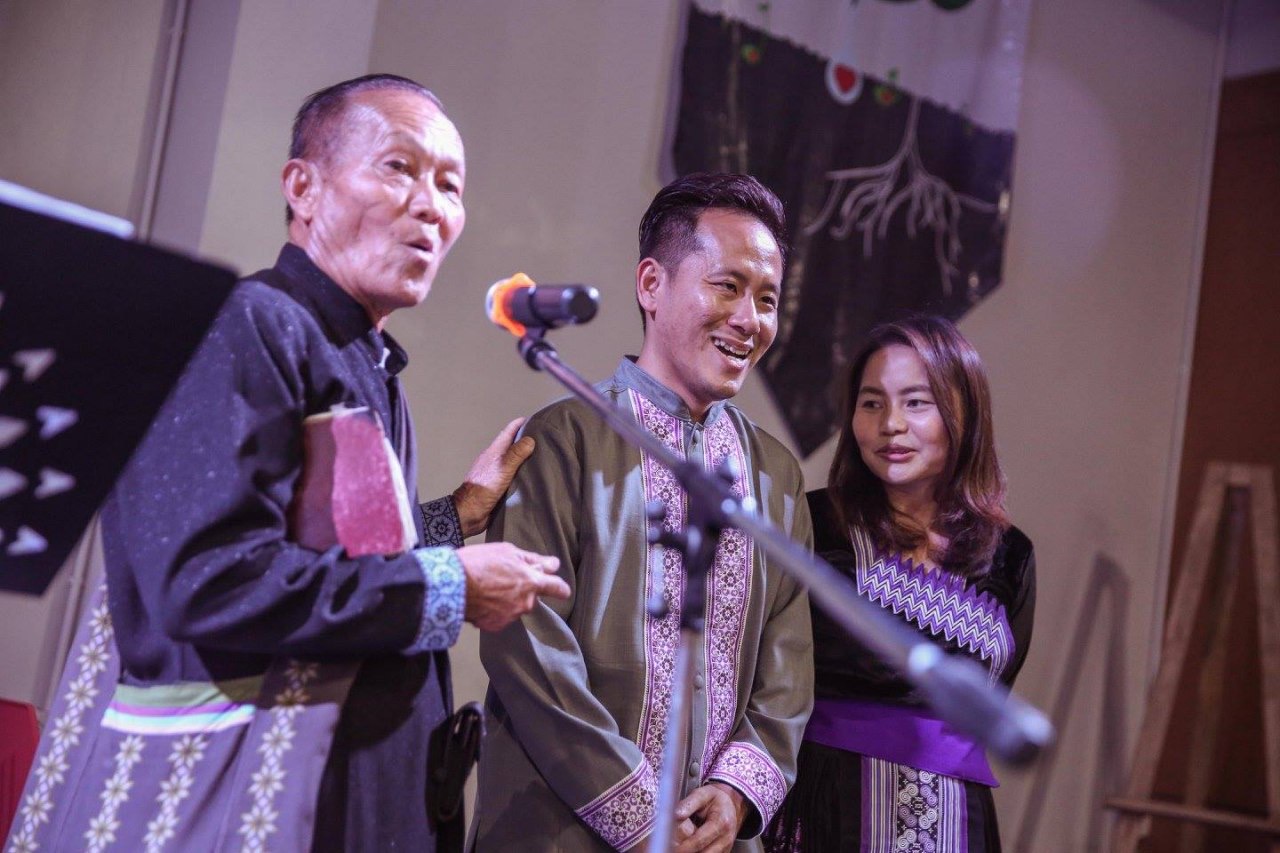
Eugene and Puu at their wedding in Petchabun.
It was only as they worked together that they discovered that they had a lot in common, chief of which was a big heart for Christ and for people.
“When she was engaged by Radion, she didn’t even ask what her salary was,” he said. “She had worked with expats most of the time, so she had expected a different salary.
“You have no big house, no big car, the only thing you have is God.”
“Yet when she realised that this was all we could afford to pay, she was quite moved.”
One day, as they were sitting in an old truck which they used for their ministry, Kanokrat told Wee: “I’ve worked with many expats who have nice cars and stay in nice properties. They have their steaks. They have everything.
“You, on the other hand, you have nothing. You have no big house, no big car, the only thing you have is God.”
It was no exaggeration. To set up Radion, Wee had flushed out his financial reserves in Singapore, and swapped his King Koil bed to sleep on the Radion office floor in Petchabun. Even his family had turned their back on him for a time.
Wee teared up as he recognised the truth of Kanokrat’s observation.
“I have nothing,” he realised. “I have lost everything in this pursuit of God, just to follow Him.
“And yet. In Him I have everything.”
Love Actually
Little by little, as their friendship grew, Kanokrat revealed how her heart had softened.
“Once when you left for Chiangmai for administrative work, you left me with the keys to the safe,” she told Wee. (“The safe was so small you can even lift it up,” added Wee in an amused aside.)
“I have nothing. And yet in Him I have everything.”
“The money you had left behind was 50,000 or 100,000 baht (about S$4,000 at the time). I thought you had left me with the cash flow for this month. It was only later when I looked through the books that I realised that that was all that Radion had,” said Kanokrat.
“And I was left with a dilemma because I was planning to tender and tell you that I’m going to go off and find a job with better prospects. But when I saw the work that you’re doing, and I saw the children and I saw the old people, I couldn’t bear to leave.”
Even though she had spent most of her life studying and working in Chiangmai, Kanokrat had been born in Petchabun. These were her people that Radion was helping.
And so she decided to stay for one more month. That month turned into another, then another. And today she is still with Radion.
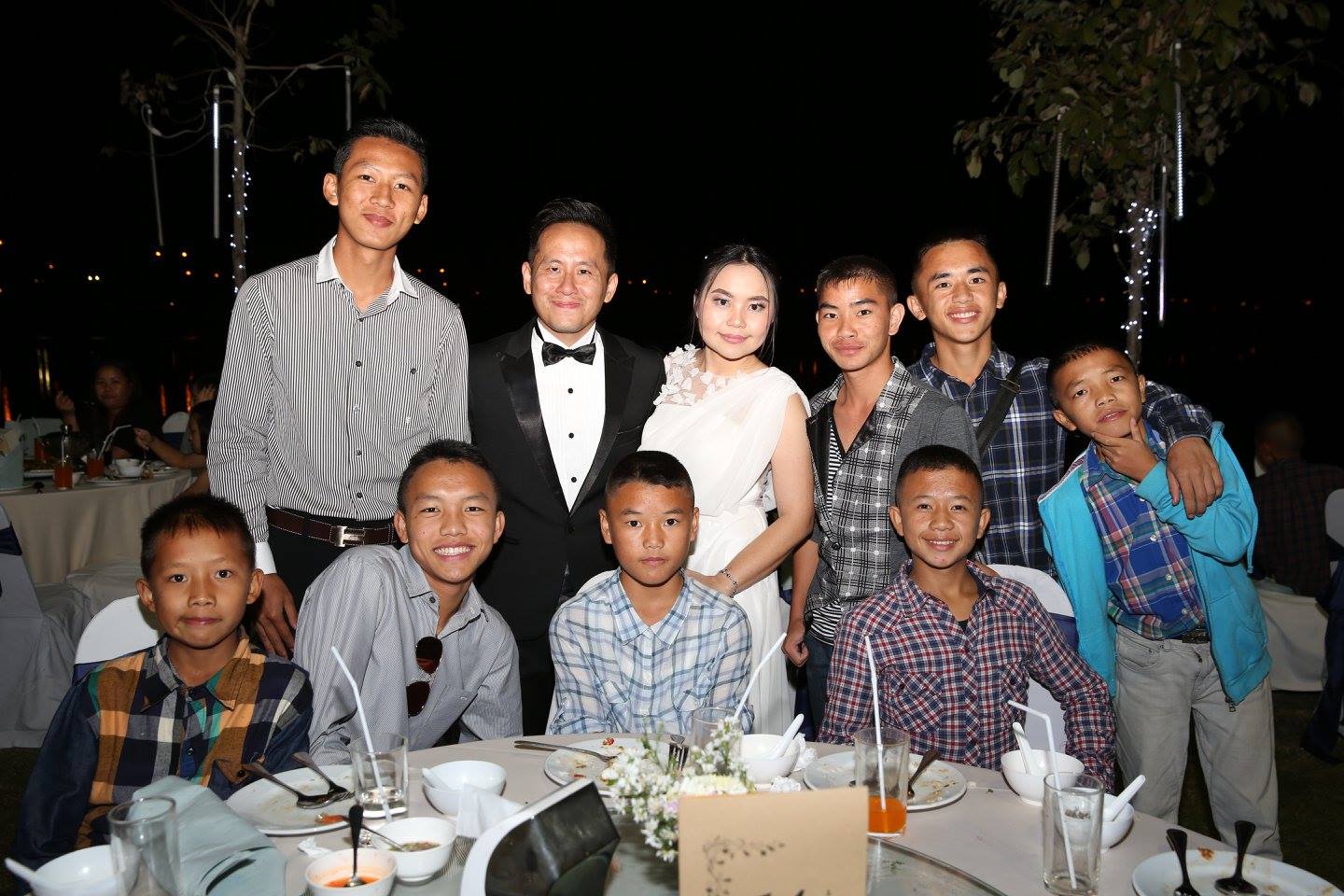
Eugene invited the Radion children to his proposal, so they could see what a real proposal looked like, instead of the bride-napping and forced marriages they had witnessed in the village. The children also attended the wedding.
There were comical moments as they worked together in the beleaguered ministry.
“In the first few years, we really could not see ahead – really kua boh (Hokkien for ‘cannot see anything’)!” said Wee. “Puu, who is our accountant, came up to my office one day and said, ‘By my projection, looking at the books, Radion only has another two more months. Then we won’t have any more money. We have to close down.’
“I replied, ‘Praise God!’ She thought I was joking and was very angry.
“But, you see, when we first started Radion, we were living day by day. We didn’t even have fund reserves for the next week. So if she says we now have funds for two months, then thank God!”
Korean drama
When Wee proposed, he made sure the Radion kids were present.
“Many of them had been asking me when I would get married, or if I was going to get married at all. So far I had been non-commital, so they didn’t expect me to get married!” said Wee, a twinkle in his eye.
“I told the kids, ‘Okay, we’re going to have a good meal today’, and they were all just prepared for a good meal. They didn’t expect me to propose.
“These secondary-school age kids have never seen what a proposal looks like – villagers had been bride-napped, or forced into marriage. So I thought it was a good opportunity for them to see what a proposal was like.”
When Wee actually popped the question, complete with a ring, “many of my older girls were crying … they were like, ‘Oh so this is what it looks like ah, I thought it’s only in Korean dramas’!”
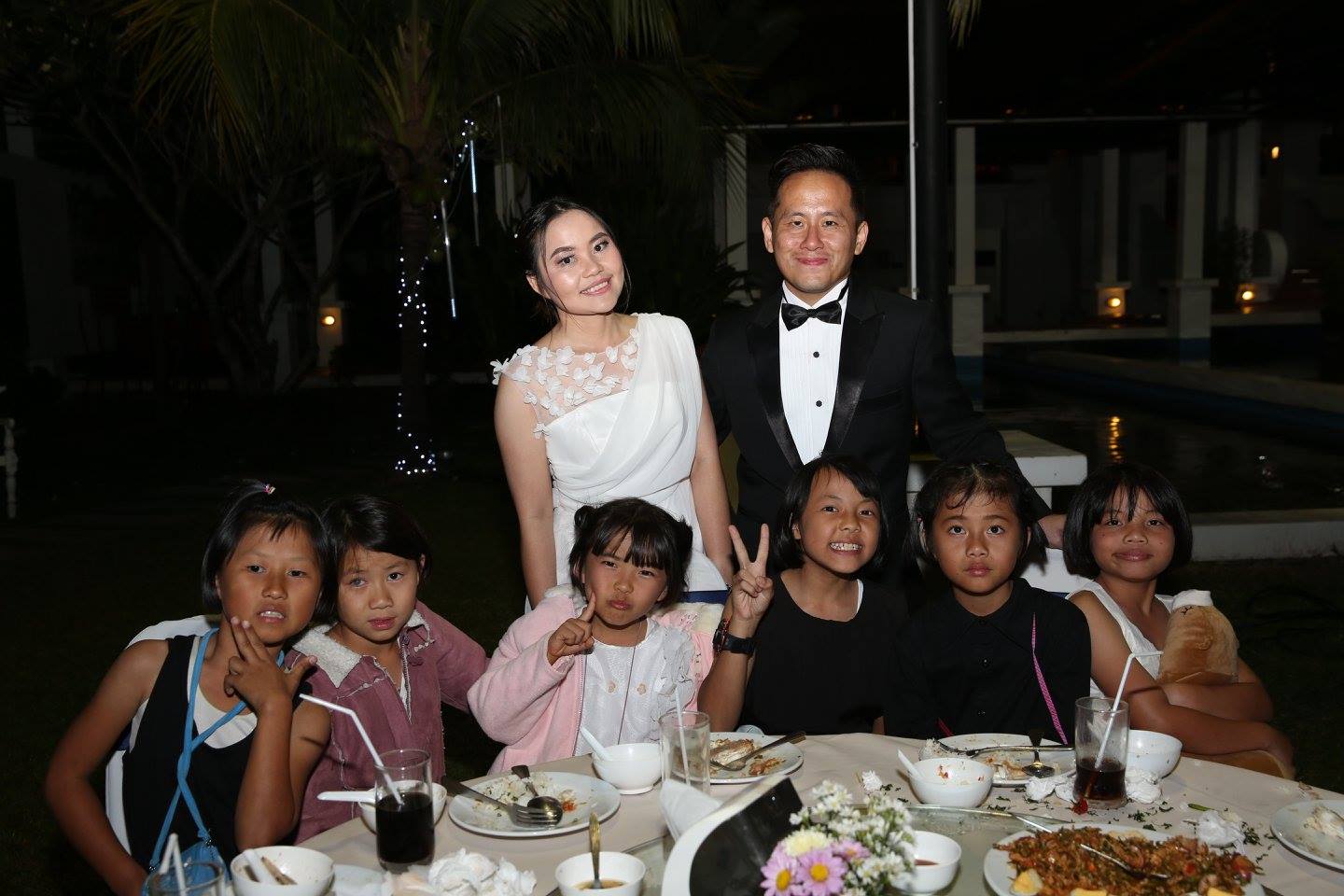
Eugene’s proposal to Puu was “like a Korean drama”, declared the Radion girls, who were also wedding guests.
Kanokrat didn’t say yes immediately.
“I was on bended knee and she was thinking about all kinds of issues, like social status and cultural differences … she was giving it a lot of thought. And I told her, ‘You have to quickly decide, because my knees are very tired already! If you think that we’re not meant to be together, let me know, then we’ll just continue with the meal!’
“See, I was prepared – in the worst case scenario if she turned me down, then we’ll just continue with our meal lor,” he chuckled.
The first four hours
The wedding was held in both Chiang Mai as well as in the village of Khek Noi, both places in Thailand where Radion runs its ministries.
To his parents who wanted him to have a grand Singapore dinner, he replied: “No lah, I don’t think we need to. A simple wedding is enough.”
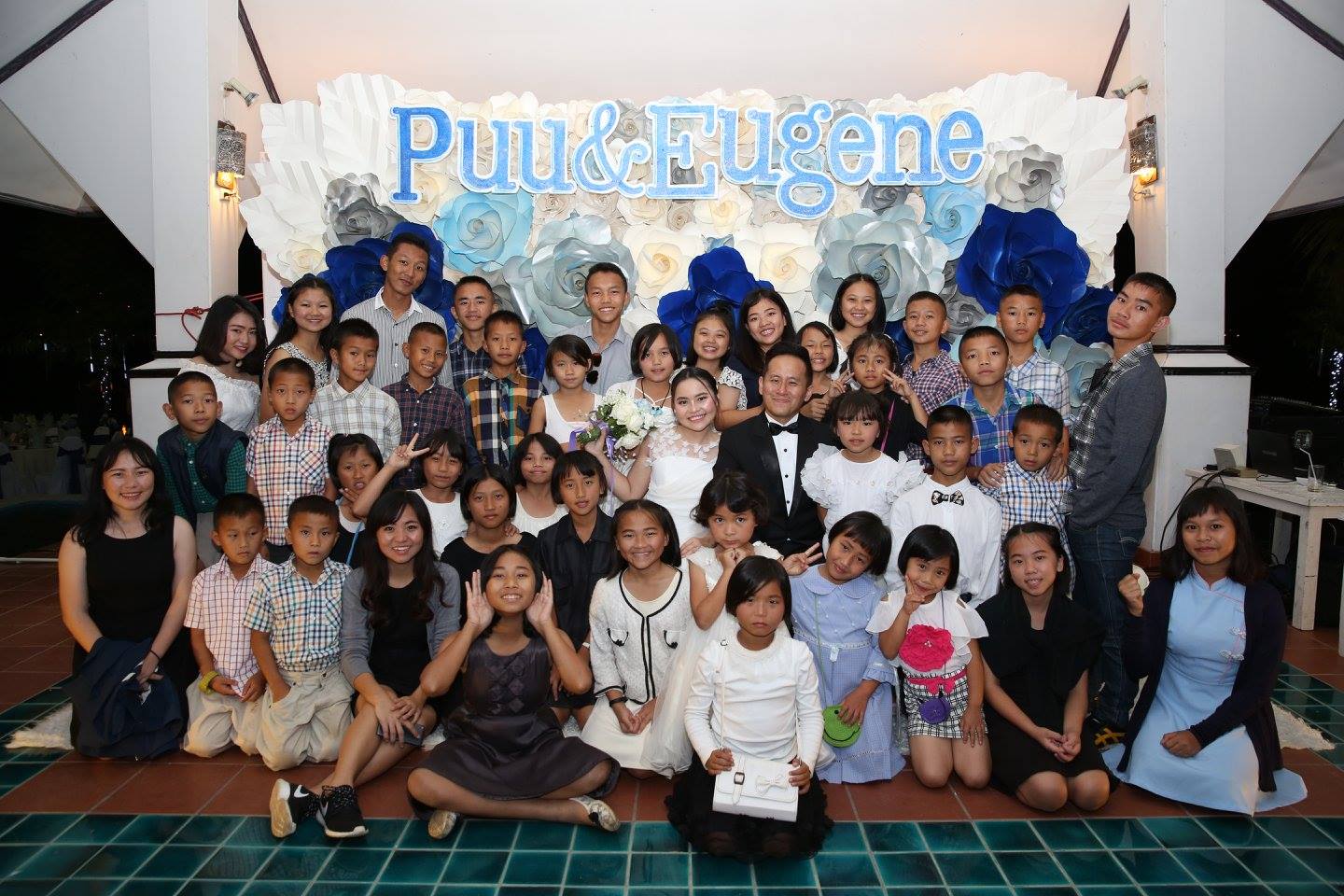
At their cosy wedding, one third of the tables were reserved for the children and staff of Radion.
In a characteristic Facebook post on November 15, 2016, Wee wrote:
“Yes. I’m finally getting married … The preparations have been nothing less than exciting, looking at the most romantic venues, best dining concept, delicious food & wine etc – all to commemorate this once in a lifetime event.
… But I struggle. Because at 35, I know that after the wedding, the rose petals will wither, the ice will melt and the beautiful gown will be hung up and never worn again. … I’m reminded that a wedding ceremony lasts for 4 hours and a marriage a lifetime.
The struggle within me is not one of affordability, but rather the moral dilemma of splurging on a 4 hour event.
Knowing that the stack of money used in a single evening can be either used to bring prestige, glamour and pride to the couple. Or it can be better used to help put needy kids through school, provide jobs for mothers or bettering someone else’s life.
… Our wedding will be a small cosy affair, next to a little lake in Chiangmai, spent amongst my closest friends and relatives, and the bunch of streetkids that I’ve raised since young.
That’s how Puu Kanokrat and I would like to spend the first 4 hours of our lives together.”
The couple kept their wedding to 15 tables – five for his guests from Singapore, five for her Thai relatives, and five for the children and staff at the Radion homes.
An unexpected blessing
There is more to the story of the baby they lost.
The couple had never intended to have a child.
“We didn’t think it was right to have a kid without being able to be fully committed parents. We work in a dangerous area and our travelling schedules are high.”
So the pregnancy was unexpected.
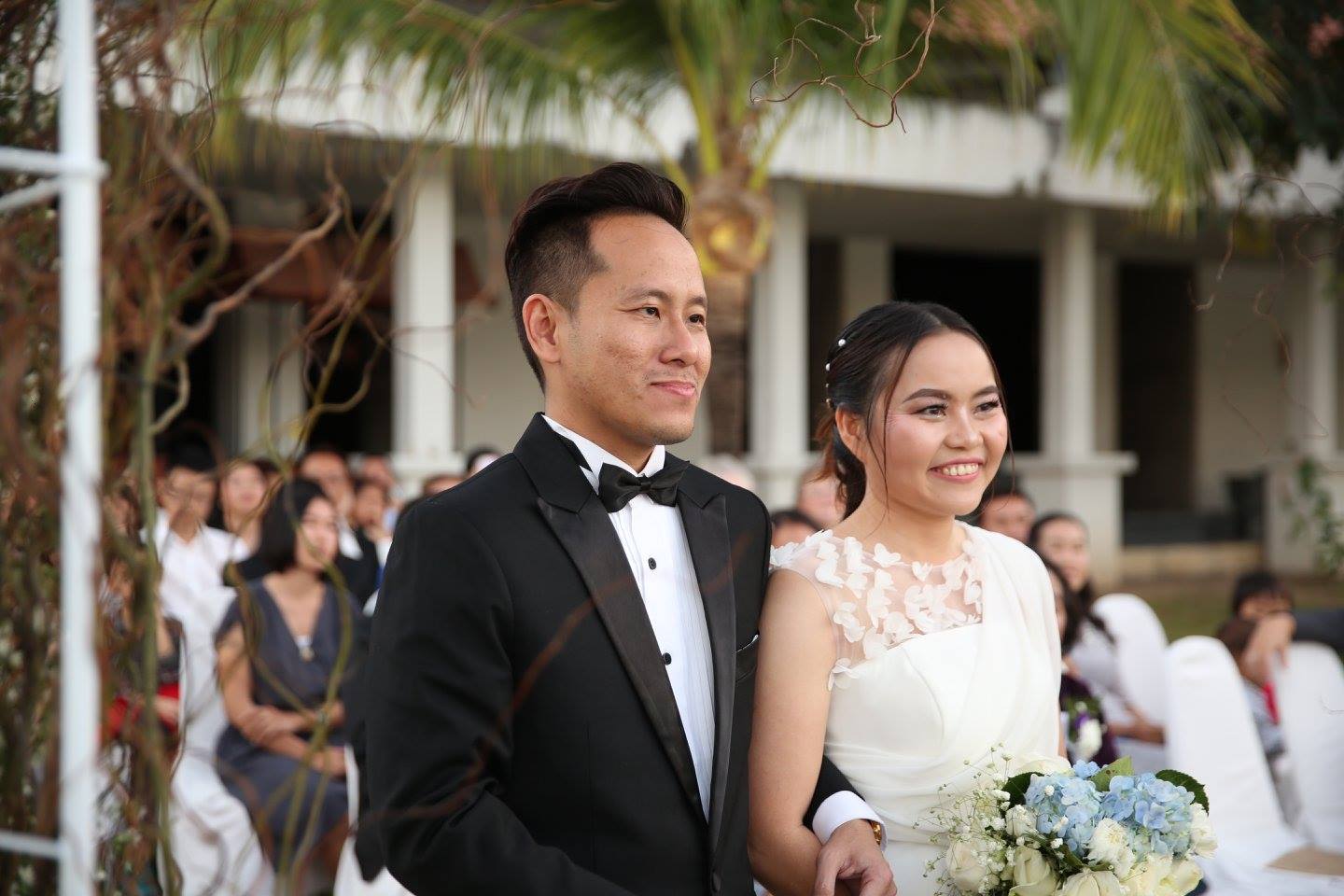
Eugene and Puu opted to “spend the first four hours” as man and wife with a simple wedding.
“The first thought that came to my mind was, ‘Why Lord?’,” said Wee. “Because it meant changes in how we would manage our finances … many things had to change.
“We never had a house of our own, we slept on the office floor. But I could not raise my child inside my office!”
“God used this to show people that Christians can be dramatically and distinctly different in how we choose to live our lives.”
Because of the pregnancy, the couple decided to build a small house so that “at least if the child cries, it’s not going to disturb my staff to death”.
The house was only half built when their baby died.
They were in a dilemma as to whether to continue construction. In the end they decided to carry on.
But the house remains a bittersweet reminder of the little one they lost.
The couple’s faith is not shaken. They are reminded of Job 1:21: “The Lord gave, and the Lord has taken away; blessed be the name of the Lord.”
“There’s a beautiful part to this,” says Wee. “When we emerged from that whole saga, we realised that somehow God used that whole story to move Christians and non-Christians alike. To show people that Christians can be dramatically and distinctly different in how we choose to live our lives.
“My wife’s courage, faith and conviction have inspired me to embark on this journey to make a difference.”
We are an independent, non-profit organisation that relies on the generosity of our readers, such as yourself, to continue serving the kingdom. Every dollar donated goes directly back into our editorial coverage.
Would you consider partnering with us in our kingdom work by supporting us financially, either as a one-off donation, or a recurring pledge?
Support Salt&Light
